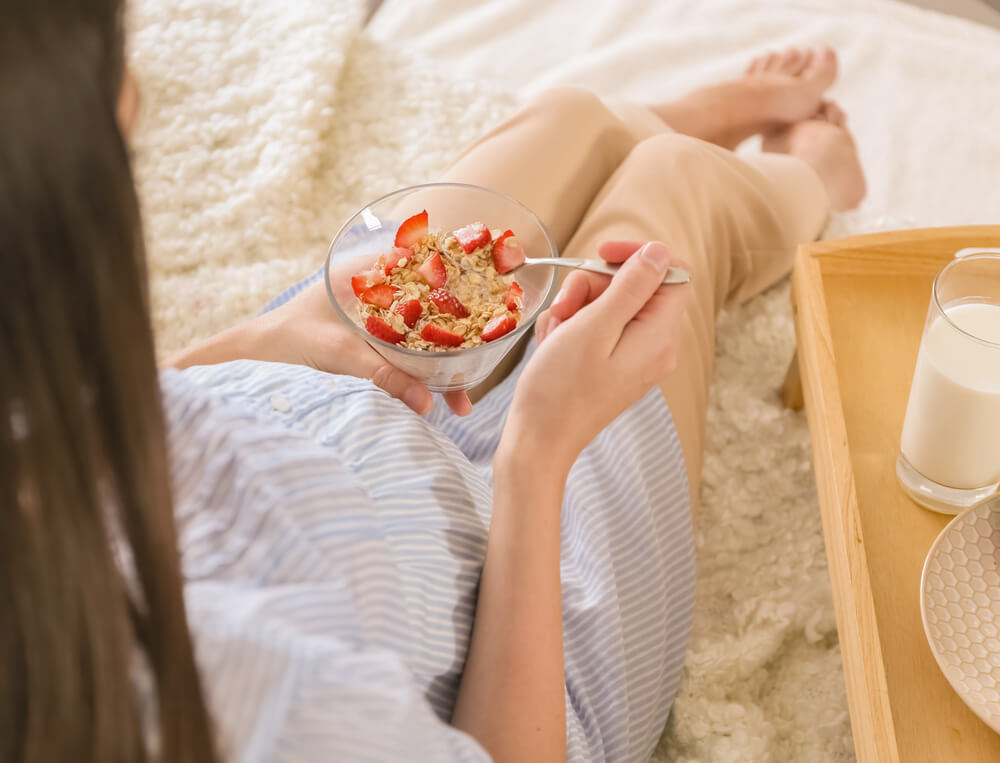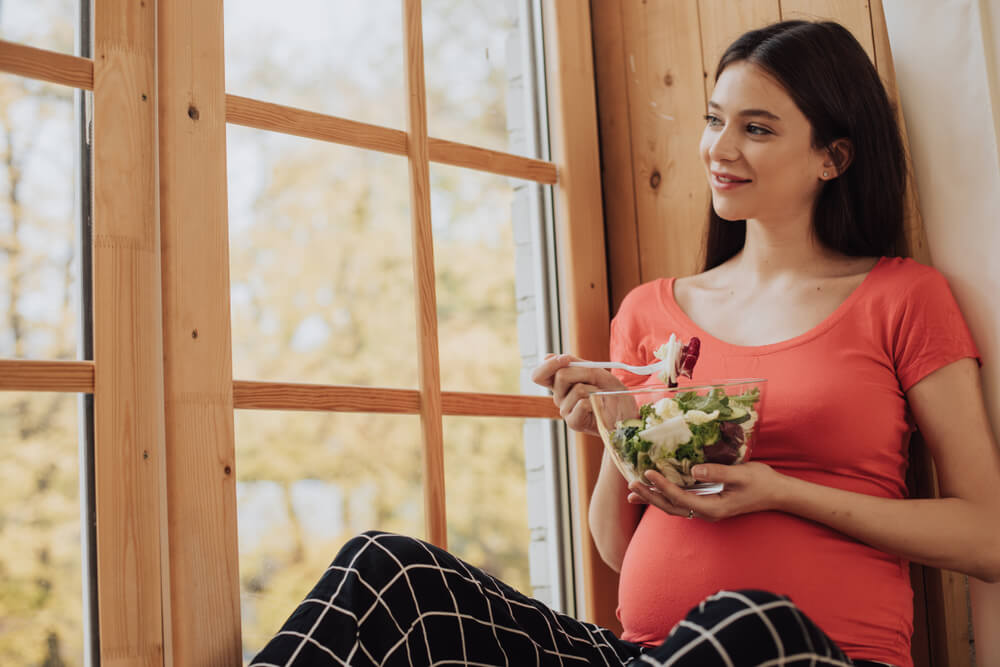When you are pregnant, you must always keep in mind that what you eat is the baby’s source of nourishment. That’s why experts recommend that a pregnancy diet plan must include lots of healthy foods and beverages essential for the baby’s growth and development. Unfortunately, your diet plan can be complicated by symptoms like food aversion. So what should you eat, and when does food aversion start in pregnancy?
Apart from searching for a gynecologist South Miami center, you must also find a doctor to help you with your diet during pregnancy. Read on to find out what you should eat during pregnancy and why.
Drink Lots of Water
It’s crucial to stay hydrated. Research shows that the volume of blood will increase by about 45% percent during pregnancy. This is because your body will also need to channel hydration to the baby. As a result, if you don’t take enough water, there is a higher risk you may end up dehydrated.
Increasing the amount of water you take during pregnancy will also help combat constipation and lower the chances of coming down with urinary tract issues, which can be quite common in pregnant women. This is why water must never be an afterthought as you are planning your dinner, lunch, and breakfast for pregnant women. Generally, it’s recommended that pregnant women should drink about two to three liters of water each day. However, this amount varies. The best way to find out the amount of water you need is to talk to your doctor. Specialists like Dr. Rodriguez Obgyn will be able to make recommendations based on your individual needs.
Several symptoms indicate you are not drinking enough water during pregnancy. These include headaches, anxiety, tiredness, bad mood, and reduced memory. To avoid dehydration, you can keep a reusable water bottle with you wherever you go so you can easily quench your thirst.
Whole Grains for Fiber

Unrefined grain products have a high fiber content. This is why they should be part of your pregnancy meals. They are also packed with vitamins and several other plant compounds that are good for your health and the baby’s health. Whole grains include foods like oats, brown rice, and barley.
Some whole grains, like oats and quinoa, also have a good protein content. They also supply some much-needed nutrients, like magnesium and B vitamins, during pregnancy. There are several ways to ensure that you get enough whole grains during pregnancy. You can start adding them to your meals, and you can even come up with different recipes. For instance, roasted sweet potato can be a good recommendation for breakfast for pregnant women.
Dairy Products for Protein and Calcium
A pregnant woman must get lots of protein and calcium. That’s why you must add dairy products like milk, yogurt, and cheese to your list of natural food for pregnancy. This will go a long way in meeting your baby’s nutritional requirements.
The majority of dairy products supply two different types of proteins your body needs. These are whey and casein. Apart from that, they are also an excellent dietary source of calcium, and they provide impressive amounts of B vitamins, phosphorus, zinc, and magnesium.
Research shows that yogurt, in particular, has a higher calcium content than the majority of dairy products. There are also other varieties of yogurt that are loaded with probiotic bacteria, which you need to support good digestive health. Fortunately, even lactose intolerant people can take yogurt without any side effects. However, before you try it out, you must talk to your doctor first. You might be lucky enough to find out that yogurt doesn’t affect you as much as other dairy products do.
Try Different Egg Recipes
Eggs are among the healthiest pregnancy foods and should be part of your breakfast for pregnant women. They are packed with a variety of nutrients that are crucial for the baby’s growth. Each time you include one large egg in your pregnancy meals, you will get around 80 calories, fat, easily digestible protein, and a number of minerals and vitamins. Eggs are also one of the best sources of choline, which is a vital pregnancy nutrient. Choline is needed for the development of the baby’s central nervous system. In its absence, the risk of congenital anomalies in the spine and brain is increased significantly.
Research shows that a single egg contains about 147 mg of choline. This will cover about 30% of your daily requirement of 450 mg. To get the best out of eggs, try out different recipes, and make sure you pick out the healthiest ways to cook them for your pregnancy meals. You can also try them in a spinach feta wrap or a chickpea scramble.
Nutritious Vegetables and Greens
Everyone knows greens are the ultimate health food. Green, leafy vegetables like spinach are loaded with many crucial nutrients during pregnancy. However, many people don’t enjoy eating greens. Fortunately, there are ways to make them more enjoyable. For instance, instead of eating them on their own, you can squirrel them into different recipes.
Greens are loaded with fiber, vitamin C, A, and K. They also contain considerable amounts of iron, calcium, and potassium. You can see why they are a must-have on your list of real food for pregnancy. They will also go a long way in helping you keep constipation at bay due to their high fiber content. Apart from preventing constipation, studies indicate that vegetables are associated with a lower risk of underweight babies. So, if you are a fan of smoothies, you can throw in bits of spinach in there. The upside is you might not even notice it’s in there.
Lean Beef or Pork for Protein
When you are pregnant, you need lots of premium quality protein. That’s where lean meat comes in. A good serving of beef or pork will not only deliver a good amount of protein but will also give you some much-needed choline, iron, and B vitamins. Iron is essential during pregnancy as the body needs it for use as part of the hemoglobin found in erythrocytes. You will definitely need to take more of it, considering that your blood volume will be increasing. Doctors recommend that pregnant women take more iron, especially during the third trimester.
During the first and second trimesters, lack of iron can lead to iron-deficiency anemia. The condition is known to cause low birth weights and several other pregnancy complications. Unfortunately, it’s usually quite difficult to meet your pregnancy iron needs from your meals alone. This is further complicated by developing an aversion to meat. If your doctor feels you are not getting enough iron, they might end up recommending supplements as part of your pregnancy diet plan.
Berries for Antioxidants and Vitamin C
Berries are loaded with an impressive amount of pregnancy goodness even though they are quite small. They pack healthy carbohydrates, vitamin C, and some antioxidants. Fortunately, their glycemic index is relatively low, so they shouldn’t cause issues with blood sugar. Some of the berries you can take while pregnant include blueberries, raspberries, and strawberries. Berries are also good for smoothies or just as a tasty pregnancy snack.
Salmon for Essential Omega-3 Fatty Acids

Salmon is also a welcome addition to your list of natural food for pregnancy. This tasty offering is packed with essential omega-3 fatty acids that have many benefits for you and the baby. For instance, they are needed for building the brain and eyes of your baby. Apart from that, they can also help increase gestational length. You should also keep in mind that salmon is one of the rare natural sources of Vitamin D, which is needed for bone health and immune function. Fortunately, you can never run out of ways to prepare salmon, making it an easy addition to the pregnancy diet.
When Does Food Aversion Start in Pregnancy?
So, when does food aversion start in pregnancy? This is one of the most dreaded side effects of pregnancy. Food aversion and morning sickness usually start within seven days of each other. Usually, these symptoms are prominent during the first trimester. While they are at their peak during the first four months or so, they may sometimes last the entire nine months and beyond. In some instances, they may disappear and resurface again.
What do you think of our list of foods that must make up your pregnancy diet? These foods will provide most of the nutrients you and your child need. It’s quite important to obtain good nutrition during pregnancy. However, you must also avoid overeating. Fortunately, your doctor will monitor your weight and make recommendations where necessary. If you need help with your pregnancy diet, get in touch with us today. Our professionals have many years of experience helping pregnant women with healthy diet plans, so you can trust our advice.



